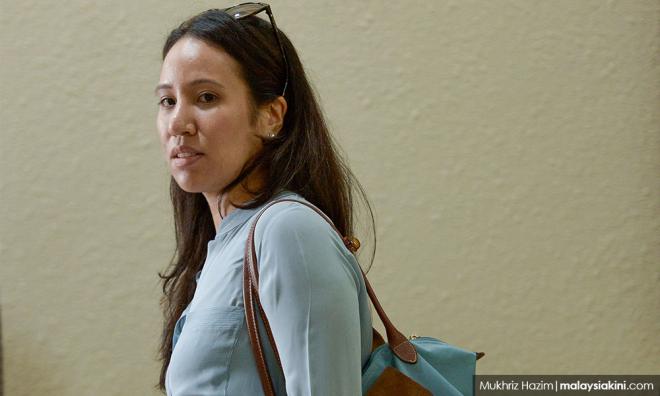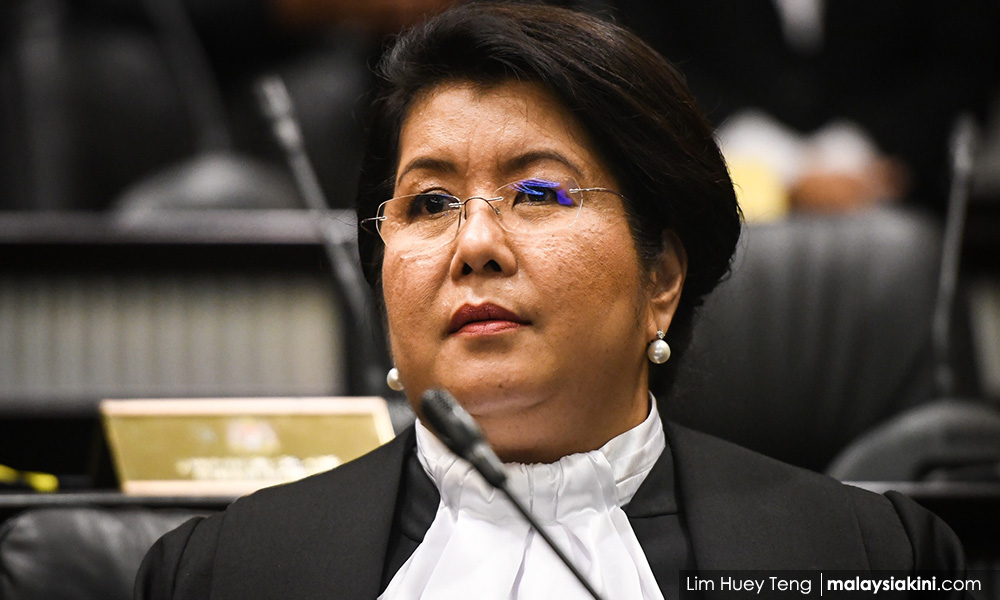
The daughter of former prime minister Najib Abdul Razak, Nooryana Najwa Najib (above), has mounted a legal challenge against the constitutionality of a provision under the Income Tax Act 1967.
This comes as Section 106(3) of the Act disallows court intervention in a civil suit filed by the Inland Revenue Board (IRB) against Nooryana, where the government is claiming over RM10.3 million in income tax from Nooryana.
Her lawyer, Muhammad Farhan Shafee, said the particular provision prevents a judge from making a decision and gives the court no choice but to give judgment in favour of the government.
"In the case of Nooryana, the IRB is seeking to recover about RM10 million in (tax assessment) from her. This assessment can be subject to an appeal to the Special Commissioner of Income Tax.
"(However), in between this appeal procedure, the IRB can file a civil suit to the court, which in this case they filed it at the High Court, seeking the recovery of the funds.
"And, when they filed an application to the court, they can go by way of summary judgment. Because Section 106(3) of the Income Tax Act effectively says that the defendant has got no defence," Farhan told Malaysiakini when met at the Shah Alam High Court Complex this morning.
Farhan was representing Nooryana in the civil suit filed by IRB in the High Court in Shah Alam, where today was fixed as hearing date before judge Faizah Jamaludin.
For the record, summary judgment is a judgment entered by a court for one party and against another party summarily, which is without a full trial.

According to the Farhan (above, on left), the provision states that a defendant cannot argue in court whether the tax assessment was done correctly and whether it was excessive.
This, Farhan added, was the part where they alleged "pay first and talk later".
"The court has got no choice but to give judgment in favour of the plaintiff.
"We are saying that this provision is unconstitutional because it removes the power of the High Court judge, or any judge handling the matter, to make a decision
"In our system, where we have three limbs of democracy - the Parliament, Judiciary and the Executive - the courts should be the ones making the decision. So that is the basis of our challenge," he said.
The IRB has filed a writ of summons against Nooryana in the High Court in Shah Alam in July last year, seeking RM10.3 million in unpaid income taxes.
However, the housewife had since questioned the move by the government, which was then under Pakatan Harapan administration, to tax her over money which she claimed was given to her by her wealthy husband, Daniyar Kessikbayev, and his family.
She has since filed an appeal with the Special Commissioner of Income Tax.
Stay application rejected
The proceedings today saw Justice Faizah deliberating on an application by Nooryana to get a stay on the suit by IRB, which is seeking summary judgment to compel Nooryana to pay the RM10.3 million.
In her application, the defendant is also seeking for the High Court to refer the specific constitutional question to the Federal Court for determination.
However, the application was denied by the judge after hearing submissions from both Farhan and government lawyer Norhisham Ahmad.

Justice Faizah (above) in her ruling said that she could not allow a stay just because Nooryana is challenging the provision.
According to the judge, as long as the law is yet to be deemed unconstitutional, it is still legally binding.
She added that if a stay were to be allowed, it would create a basis for others facing a similar case in the country to get a stay of their hearing, just because they are challenging the provision.
"If I am to allow this at the last hour, on the question of whether Section 106 is against the Constitution, then every single taxpayer in this country will apply for a stay on this ground," said Faizah.
However, the judge allowed a verbal application from Farhan for the court to decide on the constitutionality issue, which the defence argued that the court has the power to do so.
Justice Faizah then set Aug 8 for both parties to submit additional submissions and Aug 26 for her decision on the summary judgment. - Mkini
No comments:
Post a Comment
Note: Only a member of this blog may post a comment.